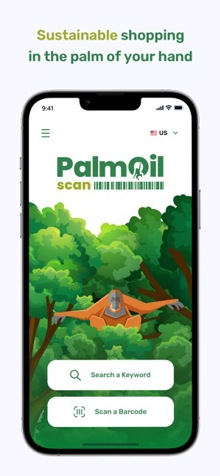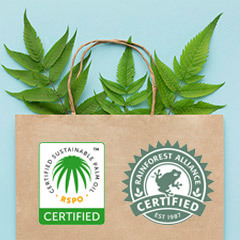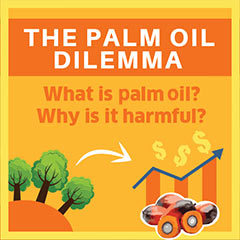
Shop Sustainably
When you eat packaged food, chances are you’re eating palm oil. Now the most widely produced edible oil, palm oil is used in cosmetics, fuel and foods (like cereal, soup, frozen meals, or potato chips). Orangutans, tigers, elephants, rhinoceros and gorillas all face an extreme risk of extinction within our lifetime, largely due to habitat loss from palm oil plantations.
You can help by shopping sustainably.




